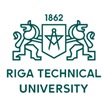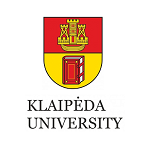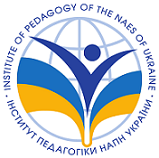EDUCATING OF COMMUNITY TO CORRDINATE INETRESTS IN SPATIAL PLANNING
Last modified: 24.02.2020
Abstract
The main obstacles of low effectiveness of public participation in the development process of spatial planning documents in Latvia are the lack of confidence of the population in the effectiveness of public participation, the lack of adequate competence and skills of local authorities for involvement of different interest groups, insufficient understanding of society about the coordination the interests of individuals with spatial development aims in different planning levels, as well as with the aims of sustainable development of local government territory. There are a variety of informal measures and methods which the municipality can use to raise the level of public knowledge and awareness about spatial planning to achieve the best outcomes from both the public interest and sustainable development perspective. These measures help a more active involvement and effectiveness of participation of community in the spatial planning process. The purpose of the study is to describe the problems of coordination of different interests, insufficient public participation, as well as to identify the educational opportunities for the matching the different interests in spatial development planning process in Latvia. The following tasks were identified in order to achieve the objective of the study: (1) to justify the needs for the coordination of interests in the spatial planning process; (2) to identify the main problems of public involvement and educational opportunities for the coordination of the interests. Methods used - content analysis, document analysis, deductive and inductive method, comparative analysis.
Keywords
References
Auders, M. (2008). Sabiedrības iesaistīšana pašvaldību teritorijas plānošanas procesā. Retrieved from http://www.varam.gov.lv/lat/publ/met/?doc=14074
Čepāne, I., & Statkus, S. (2005). Pašvaldības teritorijas plānojums kā nekustamā īpašuma tiesību aprobežojums. Jurista vārds 2005.gada 25.janvāra Nr.3 (358) un 1.februāra Nr.4 (359).
LR Augstākā tiesa (2013). Tiesu prakses apkopojums teritorijas plānošanas, būvniecības un vides lietās, 2008-2012. Retrieved from http://at.gov.lv/files/uploads/files/6_Judikatura/Tiesu_prakses_apkopojumi/2016/7-teritorijas%20planosana-2013.doc
LR Satversmes tiesas (2004). Spriedums 2004.gada gada 9.marta spriedums lietā Nr.2003-1605. Retrieved from http://www.satv.tiesa.gov.lv/wp-content/uploads/2016/02/2003-16-05_Spriedums.pdf
LR Satversmes tiesa (2008). Spriedums 2008. gada 17. janvāra lietā Nr. 2007-11-03. Retrieved from http://www.satv.tiesa.gov.lv/wp-content/uploads/2016/02/2007-11-03_Spriedums.pdf
Krek, A. (2008). Games in Urban Planning: The Power of a Playful Public Participation In: REAL CORP 008: Mobility Nodes as Innovation Hubs. Proceedings of 13th International Conference on Urban Planning, Regional Development and Information Society. Retrieved from https://conference.corp.at/archive/CORP2008_45.pdf
PKC. Politikas veidošanas rokasgrāmata. Retrieved from https://www.pkc.gov.lv/sites/default/files/inline-files/pkc_rokasgramata_090316_web.pdf
Providus. (2008). Sabiedrības līdzdalība teritorijas plānošanas un būvniecības jautājumos. Retrieved from
http://providus.lv/article_files/1780/original/Lidzdalib_MAKETS1(1).pdf?1332860156
Rīgas plānošanas reģions (2013). Pētījums par sabiedrības iesaistes mehānismiem attīstības plānošanā un uzraudzībā vietējā līmenī. Retrieved from http://rpr.gov.lv/wp-content/uploads/2018/01/Sab_lidz_Petijums_FINAL.pdf
Trosens, A., Hofmans, R., & Rotfišere, D.B. (2004). Mediācija. Mediācijas pamati teorijā un praksē. Retrieved from http://www.mediacija.lv/?Resursi:Gr%C4%81matas
VARAM. (2011). Metodiskais materiāls „Pašvaldības, iedzīvotāju un uzņēmēju interešu saskaņošana – sabiedriskā apspriešana kā instruments”. Retrieved from http://petijumi.mk.gov.lv/node/2289








